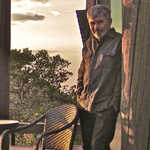What is it like to grow up on Reserve? This is a question I have often asked myself. Growing up in an urban center, I don’t know what it is like to live on reserve. We learn from history books about when the Aboriginal people were placed on reserves in the 1800’s and how they didn’t feel they had a choice. At that time it was either starve or more onto a reserve and be able to have some of the cessations that the government was providing. The Mounted Police were supposed to be patrolling the reserves to protect the people, but the Indians at that time felt oppressed.
But what happened after? Is growing up on reserve now like the stereotypes that you hear about? Suicide, teenage pregnancy, and do they feel that oppression today, or is that simply their home? Rather than search online for textbook type answers I decided to get a little more personal with an interview.
I spoke with Kim who is from a reserve in Cross Lake Manitoba. Kim is in her 30’s with 4 children. She has a husband and 3 of her children ages 10, 9, and 8 live with her; her 16 year old does not. Kim described to me how her views on living on reserve changed as she grew up. When she was a child, she enjoyed living on reserve, close to friends and family. Her days were spent with about 30 kids all hanging out together, sledding in the winter and swimming in the summer. As she grew up she realized that in a small community where everyone knows everyone, it has drawbacks. Everyone seemed to know everyone’s business and would talk about everyone else.
Kim spoke a lot about bullying. Even though they are all from the reserve, kids from different parts of the reserve will bully other kids at school, or on the bus etc. Many of the suicides come from the bullying. Kim said her band, like many others is a very high risk for suicide. She explained that during one year’s time, there was almost a suicide every week during that year with the ages ranging from 11- 19 years of age. Kim was lucky to not lose any family members but she has lost 2 very close friends. An emotional event in Kim’s life happened when she was 16 years old. Kim and a few friends actually came upon a young man hanging himself, and had to try to get him down and perform CPR. They saved his life, and he doesn’t remember what even happened. The Band eventually opened a Crisis line to try to help, and for about a year it seemed to; however after no one called the line. The confidentiality was not there and when everyone knows everyone, confidentiality is of utmost importance.
Kim grew up in a family with 4 brothers and 3 sisters and her mom and dad. She said her home felt like a home. Lots of her friends’ homes didn’t feel like this as their parents drank. Her mom would even take care of her friends and give them a bath or brush their hair to help. Kim says that lots of people on her reserve care and help others. They have a facebook page for giveaways, to donate clothes etc to others. If someone is ill they will even do a pledge on the radio and the people will raise about $2000 for that person. Cross Lake is the only reserve that does this in Manitoba.
Teenage pregnancy is an issue on the reserve, with about ½ of the teenage girls in the high school pregnant. The school doesn’t do any education at all on pregnancy or prevention. Most of these pregnancies tend to be from “hooking up” with someone and not a long term monogamous relationship.
Alcoholism is also an issue. Many people drink on the reserve. Kim told me of a time when she was 13 years old and went to her auntie’s to babysit her 5 kids. Kim had asked her auntie to not come home after drinking, but the auntie and her partner came home drinking and brought more beer. Kim said the youngest boy who was only 3 or 4 years of age started drinking. When Kim tried to stop him she was told to leave him alone. Kim was not allowed to leave the house or call anyone. She felt stuck there and helpless. The boy and his parents continued to stay up all night and continue drinking. In the wee hours of the morning, the parents finally fell asleep and Kim tried to leave. The young boy went outside and fell in a puddle and couldn’t even get up. A neighbor saw and came running to help. She called the police and the ambulance and Kim had to tell them what happened. That night Child and Family Services came and took all 5 children away. It took the parents 7 years to get their kids back. About 6 years ago, the auntie finally said to Kim; I should have listened to you when you told him to not drink. This is the only time they have ever spoken about the incident.
Kim and her family relocated to The Pas last year so she could go to school. She is taking an Office Administration program in hopes of getting a good job when she is finished. Her husband who came with her is now also taking schooling. Both of them are receiving money from the Cross Lake Education Authority; which gives them enough money to cover the books, tuition and living expenses for the family. When she is finished, she plans to move somewhere and have a fresh start with her family.
Speaking with Kim was a great experience, and really opened my eyes to an actual viewpoint of someone who has lived on reserve her entire life. This interview brought up a lot of questions regarding suicide and alcoholism on reserves. I explored these two issues further, check out my stories: Alcoholism on reserves and suicide on reserves.






